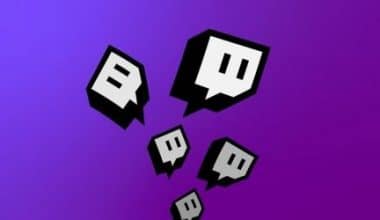An event marketing is any activity that promotes the growth of your company’s products and services while also assisting you in achieving your objectives. However, it takes many forms, including methods, jobs, and so on. Therefore, in the course of this article, you will gain exposure to a strategy for your marketing event and job opportunities open to you.
Event Marketing
Creating a targeted exhibition or presentation to promote a brand, service, issue, or organization through in-person participation is referred to as event marketing. As a type of participation, events can take place online and offline and can be attended, hosted, or sponsored. However, using events as a marketing channel allows potential customers to have a one-of-a-kind, direct experience with the company and get an authentic feel of its purpose, perspective, and personality.
Event marketing can help your company in a number of ways. You can produce leads, pipeline value, and new prospects in addition to helping to enhance brand visibility before, during, and after the event.
Think Orion can also help you to measure the success of your event marketing campaigns. By tracking attendee interactions, providing feedback surveys, and analyzing social media data, you can gain valuable insights into the effectiveness of your event marketing efforts. This will allow you to make adjustments and improve your event marketing campaigns to ensure maximum success.
In addition to generating leads, event marketing may advertise a specific product or feature while improving customer satisfaction, retention, and engagement.
The Most Important Aspects of Event Marketing
Use this checklist to ensure that your event or trade show has the most possible impact by identifying the factors that are critical to successful marketing.
#1. Have a Specific and Measurable Goal.
Ascertain that everyone engaging in the event on your behalf has a single, well-defined goal. Everyone engaged must understand that an event is a limited-time opportunity, and every second counts. Consumers do not want to feel neglected or as if they are intruding, so it is critical that the entire team remains focused on the goal during the event.
#2. Follow-up and Promotion
A lack of pre-event advertising can limit the size of your audience and the impact of your presence while failing to follow up on leads or doing so in a poor manner is a missed opportunity.
Prior to the event, target consumers to get them enthusiastic about your attendance. Decide how the follow-up procedure will be managed before the event to ensure that it is as effective as feasible. Ascertain that everyone engaged understands how leads will be collected and processed, as well as how they will be dispersed and handled after the event.
#3. Getting a Message Across
A successful event business understands that the presentation, visuals, and space design they employ are some of the most potent tools available for effectively communicating a sales and marketing message.
On the floor of a packed trade fair, it’s estimated that you only have seven to ten seconds to draw a buyer. As a result, the tools you utilize must deliver a clear, simple, engaging, and interactive message.
#4. Giveaways That Work
Giveaways can also offer a lot of value to your service or product, and they’re a great way to brand your event. This can, thus, be aided by giving them something helpful and distinctive and using the present in your sales message to create a mental link between the two.
#5. Showcase Your Product
Consumers may be intrigued by your presentation and room design, but nothing will have a greater impact than allowing them to physically view your goods or service.
#6. Each Event Should be Evaluated
The improvement follows evaluation. Begin by determining how many leads resulted in actual sales, and then go further into the details, such as how much media attention you received, how much research you conducted, and how many unique presentations you were asked to do.
Different Kinds of Event Marketing
To reach as many potential clients as possible, build a comprehensive event marketing approach that includes both offline and online events.
#1. Online Gatherings
Through a web-based platform, online events can also be linked with speakers and attendees. Online webinars, virtual events, and live-streaming events are all examples of online events. Online events are frequently less expensive than in-person events, and they can help you reach a widely distributed audience.
#2. Webinars
Webinars are also online presentations, conversations, or seminars that take place over the internet. They can take place in real-time or on-demand, and they usually last between 30 and 60 minutes. Real-time webinars allow participants to communicate with one another by allowing them to receive and debate information on a topic via web-based conferencing tools.
#3. Online Events
Virtual events combine education, networking, and interactive features to allow people from all over the world to engage in a virtual environment that looks and feels like an offline event. Participants stop by a virtual booth to grab information, meet the staff, ask questions and perhaps get some virtual swag. For all participants, these programs usually take place in real-time.
#4. Live Broadcasting Events
These are real-time events that you can also broadcast to your audience. These can still be done with only a webcam or with full production staff for better quality broadcasting. Livestream and Ustream, as well as Google Hangouts, provide a live service that allows you to stream, record, and interact with your audience through chat and social media.
#5. Physical Interactions
Physical interaction is required for offline events, and in-person interactions occur. Offline events allow for face-to-face relationship building, albeit they often take more investment than virtual events. Don’t undervalue the power of a handshake or a face-to-face meeting with a prospect or customer.
#6. Developing Trade Exhibitions
Developing one is thus a great way to meet people. A trade show is a physical meeting of people from a specific industry or profession on a platform that usually includes a number of companies from that market. A company may also sponsor or exhibit at a trade show to promote a product or just to network and expand its market presence.
#7. Conferences
A user summit, for example, is a company-specific marketing event that gathers attendees with the goal of imparting information. These events are generally larger in scale and are hosted by businesses for training or educational objectives.
#8. Seminars
Smaller meetings, road shows, and field events are thus commonly referred to as seminars. Some seminars are structured in the same way as a typical classroom lecture, with an expert sharing information with the audience.
Why Is Event Marketing Important to a Company?
There are reasons why event marketing is so important to a business, they are as follows:
#1. It Creates One-On-One Consumer Interaction
Many software and e-commerce companies never have to see their customers face-to-face. This is where event marketing can help. Attracting clients and potential clients to events would also aid in the development of personal relationships. These one-on-one interactions increase brand loyalty and also allow your customers to relate to your company.
#2. Encourage Product and Industry Training.
Whatever type of event your company hosts or participates in, there will almost certainly be an educational component. That’s why event marketing is so effective: it doesn’t focus solely on a single brand or product. Meanwhile, they focus on educating and engaging a specific audience or industry while also marketing products and services.
#3. Increase Brand Recognition
Brands can use events to promote and develop their image by hosting or attending them. You can therefore combine a physical identity and aesthetic with a different digital brand using event marketing.
#4. Creating a Business
Because events automatically create new businesses and revenue prospects, brands choose to invest in event marketing. In-person events can thus have a significant impact on achieving a company’s primary business objectives. As an event organizer, the registration procedure can also attract a large number of people who are already interested in your product, sector, or at the very least fit into your target demographic.
Current Event Marketing
A great marketing plan can make a big difference between maintaining a healthy, lucrative firm and falling behind and having lost business to competitors. Keeping up with the newest marketing trends will help you keep your solutions in front of your existing clients’ minds while also feeding new leads into your sales pipeline.
A brand can reach its target audience through a variety of platforms and inventive current strategies these days, which includes the list below:
#1. Turning and Using an Efficient Tactics
Everyone can count on the fact that technique efficacy will alter and shift over the year. To virtually build your brand across whichever channels you pivot to during the year, it’s critical to spend time understanding the heart of your brand and what makes you special.
#2. Incorporating New Marketing Channels Into Your Brand
Always keep an eye on social media, and be ready to pivot your band and flex your creative muscles. To engage their target consumers, brands must deliver the appropriate voice/vibe on each medium.
#3. Putting a Focus on Pleasure and Satisfaction
As people emerge from the pandemic nightmare, they seek comfort and delight in high-quality, well-known brands, as well as the surprise and delight of “second-mile” service or delivery. Peace of mind, tradition, family the comfort of being connected to others will do well.
#4. Developing First-Party Data Strategy
Begin developing a first-party data strategy. For many businesses, this begins with determining how a customer data platform can integrate into their existing infrastructure. It also entails assessing how the deprecation of third-party cookies, mobile device IDs, and other data privacy legislation may influence your third-party data usage.
#5. One-to-One Marketing Powered by Artificial Intelligence
Artificial intelligence (AI) can be a useful and approachable tool in a marketer’s arsenal. One-to-one marketing has been a hot topic for a long time. Once upon a time, it seemed like a far-fetched dream. It has existed in certain limited versions in recent years, but today, with the help of effectively workable AI, it is on the verge of becoming a reality by 2023.
#6. Making Use of Digital Video Platforms’ to Tell Stories
The substantial shift in consumer habits surrounding video watching is essential for 2023. Brands must shift their focus away from “channel” and toward “experience.” Today’s most popular entertainment platforms are the internet, digital, and on-demand.
#7. Investigating the Metaverse’s New Revolution
The metaverse is a multidimensional extension of our physical world, where gaming, social networks, unorthodox presences, and encryption come together to generate new channels, audiences, and chances for professionals and businesses with a new digital attitude.
#8. Adapting Media Mixes to Consumers’ New Ways of Behaving
To respond to rapidly changing customer habits, change your media mix. This is especially true in the case of television and digital. If you haven’t already, now is the time to experiment with connected and digital TV media purchases.
#9. Personalization Based on Customer Behavior
Brands must join the personalization train if they want to stay ahead of the curve. The difficulty is that most businesses have a hazy concept of what customization is and how to achieve it. Brands must examine the motivations that drive their customers’ actions.
#10. Forging Long-Term Partnerships With Creators
Building and maintaining brand recognition requires long-term cooperation with creators on platforms. With the marketing environment altering due to privacy concerns, organizations need strong connections with brand ambassadors organizing than ever to ensure organic content reaches target demographics.
Event Marketing Job
There are several job opportunities in thinking of event marketing. However, the following job opportunities represented down here in event marketing have different salaries.
#1. Manager of Event Marketing
As an Event Marketing Manager, your job is to lead income and margin expansion through multi-media direct marketing campaigns for industry-leading awards and conferences.
Job Description of Event Marketing Manager:
- Be the first person hired by FingerprintJS, a company that creates event and tradeshow strategies from the bottom up.
- To provide the best possible event and sponsorship presence, collaborate with marketing, sales, and others.
- Contracts for major and small-scale events are negotiated and executed.
- Using CRM and email marketing, analyze, track, and report on event ROI and MQL metrics.
- Responsible for event inventory management and upkeep, including collateral, giveaways, and so on.
Requirements:
- 3 years of marketing experience, preferably in event marketing, demand creation, or sales enablement.
- Demonstrated event marketing experience, which includes trade show planning, attendance, and reporting.
- Working with an enterprise sales team is a plus.
- Exceptionally well-organized, with the capacity to manage resources, budgets, and on-site employees.
- Strong written and oral communication abilities and the ability to manage numerous tasks at the same time.
- You’re a thinker who’s always looking for new ways to do things.
#2. Event and Marketing Executive
This is a fantastic opportunity to grow your network and be involved in an interesting, diversified, and involved event position while helping companies thrive and people make a better future for themselves.
Job Description of an Event and Marketing Executive:
- Collaborate with teams across the company to develop precise event briefs in order to plan and execute events on time and on budget.
- Deliver virtual events with a high level of quality. This includes setting up and handling the logistics of webinars and other virtual events, as well as communicating with speakers to ensure you have all of the necessary information for the events.
- Creating and mailing post-event surveys, gathering client feedback, and performing post-event advertising are all tasks that must be incomplete.
Requirements:
- 3 years of experience working in an events capacity, ideally in a B2B context, with a track record of effectively managing a variety of events.
- Excellent organizational and project management skills. They will be capable of handling a heavy workload, working on numerous projects at once, and strong time management abilities.
- Stakeholder management experience and the ability to develop trusting internal connections.
- Someone creative, who can think of new and interesting methods to generate sales and new event concepts.
#3. Senior Events Marketing Executive
Your job will be working as a Senior Event Marketing Executive on a portfolio of specialty B2B industry awards, conferences, and events.
Job Description of Event Marketing:
- Developing and implementing world-class marketing communication campaigns
- Coordinating activity across numerous platforms, such as email, the web, print, and social media
- Ensuring that all marketing efforts are tracked and evaluated
- Enhancing successful targeting by creating consumer data builds and analytics
Requirements:
- Past experience with B2B event marketing.
- Extensive experience with email and social media marketing.
- Excellent copywriting abilities.
- The ability to start working immediately
#4. Exhibition Marketing Manager
The event director’s job will conduct research, compose, and apply a strategic marketing plan, as well as oversee the day-to-day implementation of the exhibition’s overall vendor and visitor campaigns, as well as meet-ups and networking events.
Job Description of Event Marketing for an Exhibition Manager:
- You’re an exhibition marketer with a talent for copywriting.
- Extensive multi-channel marketing experience.
- Possess exceptional organizational abilities as well as the foresight to lead on new marketing tactics and channels.
- Your role will include providing strategic support to the sales team, which will help guarantee that the exhibition is a commercial success.
Requirements:
- Line manage, develop, and motivate a team of two exceptional marketers with roughly 5 years of B2B marketing expertise in the events area.
- For both visitors and clients, research, develop, and implement a SOSTAC marketing strategy for the healthcare event portfolio.
- Retargeting and campaign ads across Google, Twitter, Linkedin, and Facebook are implemented by the digital advertising champion.
- Supervise the healthcare events marketing function’s database management, which includes segmentation, gap analysis, procurement, improving, and cleansing programs
#5. Event Executive
The successful candidate will assist in the management and oversight of events at the company’s award-winning central London conference, event, and wedding venue.
Job Description of Event Marketing for an Event Executive:
- Showing clients around the premises and advising on effective arrangements, including making recommendations where necessary, in order to collect their information for the aim of producing their function sheet and ensuring a successful event.
- To provide assistance to the sales team in connection with more complex events in order to ensure that the client receives accurate advice/information at the time of booking.
- Prepare function sheets on a computerized diary system for clients to confirm event details and to send to operational departments to carry out the instructions according to the client’s specifications.
- Alongside the Venue Wedding Planner, manage weddings from start to finish.
Requirements
- You should ideally have extensive experience working in a busy environment.
- A thorough understanding of conference and banqueting plans, as well as associated furnishings and vocabulary, would be advantageous.
- You should be a ‘people person who knows how to provide excellent customer service at all times.
Event Marketing Strategy
Fully understanding your target demographic is crucial to any successful event marketing strategy. In event marketing, this is a little more particular, and in order to identify your target audience, you must first establish the desired outcome of your event.
Until your company has a full-fledged event planner, the event’s goals must be in line with your company’s overall goals. Consider the following examples of common event purposes:
- To increase revenue, sell more tickets.
- Increase the number of people who are familiar with a brand, product, or service.
- During the event, they sell more things.
On the other hand, when your goal is to sell items; your event’s target audience ought to be the product’s buyers. Your event marketing strategy will also be more successful if you identify your target consumers’ expectations, behaviors, and specific problems.
Successful Event Marketing Strategy
Now that you’ve identified and researched your target demographic, let’s look at some of the most effective event marketing strategies you can implement for your next event.
#1. Send the Media a Copy of the Press Release.
By publishing your formal press release with the media, you can increase your reach in getting the news out to your target guests. A professional press release will also be necessary for securing sponsors and may assist in attracting influencers who will help promote your event.
This event marketing strategy is also essential if your event’s major purpose is to raise brand awareness and establish relationships with significant people and corporations.
#2. Ahead-of-the-Game Registrations
The concept of early bird registration is simple: as the event approaches, you’ll raise your ticket price, and you can establish multiple stages or phases depending on your event’s timeframe and goals. Selling discounted early game tickets is a popular event marketing strategy because it works in two ways:
- Having a sense of urgency by saying things like “grab it now before it’s gone,” is a powerful way to encourage people to convert. Early bird tickets that have been sold might also aid in the financial flow of your event.
- People will talk about it, so it’s a great way to build buzz and expand your audience.
Another reason early bird discounts are so popular is that they are simple to integrate with other event marketing strategies, such as noting the early bird discount’s expiration date in your press release and email newsletter. It’s extremely adaptable and cost-effective, and it’s a must-have as a strategy for your event marketing!
#3. Efficient Pre-Event Advertising
You can set up a pre-event page (for example, on Facebook or your own website) to stimulate early interest. You may utilize the page to collect leads that you can follow up with once the event is officially announced, as well as organize contests and prizes to help spread the word about it.
A great pre-event page can also help with the SEO performance of your event website. If you also plan to run a long-term website or blog, this strategy for event marketing should be a big factor to consider.
#4. Marketing on the Internet
Social media as a marketing strategy may help you with all aspects of event promotion, including creating hype and momentum for your event’s launch, engaging your target audience, and eventually building a community.
Creating an event hashtag is a key step in social media event promotion. The hashtag should be distinct enough to stand out among the crowd, but familiar enough that your target audience will recognize it.
#5. Marketing Content
Guest posting on other similar blogs and websites will help you establish yourself as an authority in your field, which will lead to more people signing up. The key here is to focus on providing value to your target audience and establishing your credibility rather than merely using your material to advertise your event. To increase the number of individuals who consume your material, you should use SEO tactics.
#6. Paid Channels
It’s critical to grasp the roles of these paid channels in comparison to organic possibilities before investing in them. Organic channels are inexpensive, if not free, but you’ll have to put in a considerable amount of effort to see the intended results. Paid channels, on the other hand, can ensure quick results as long as you have the cash, but they can quickly become prohibitively costly if you are not mindful.
#7. Marketing via Email
Email marketing is still quite a useful marketing strategy, and it’s extremely good for event marketing. You can send an email explosion to possible attendees who have expressed an interest on the pre-event page, as well as send monthly emails to encourage early bird registration and drive additional traffic to your website.
You’ll be in a much better position to develop awareness, attract more people, and eventually obtain more ticket sales and registrations from your targeted audience if you use an event marketing platform and apply these methods.
The Event Marketing Calendar
Event marketing is time-sensitive as the event date approaches, your marketing activities and channels will shift. With all this in mind, most event marketing strategies can be broken down into four distinct phases:
#1. Pre-Registration for the Event
This phase takes place prior to the event’s registration/ticket sales opening, and its major goal is to generate buzz.
#2. Inauguration & Registration for the Event
This stage, in which you’ll work with the press and influencers to expose the event to our target guests, should deliver a significant boost to brand recognition.
#3. Marketing on a Day-to-Day Basis
This stage lasts from the start of the event through the closure of registration. This is where you’ll put your main marketing strategy into action.
#4. Closing of Registration
This is a crucial stage in any event marketing campaign when you’ll employ several techniques to boost ticket sales and registrations.
What Are the Five Major Types of Events?
Here are the types of events we have:
- Online gatherings
- Webinars
- Online events.
- Live broadcasting events.
- Physical interactions.
- Developing trade exhibitions.
- Seminars.
How Do You Promote an Event?
A brand can reach its target audience through a variety of platforms and inventive current strategies these days, which includes the list below:
- Turning and Using an efficient tactics
- Incorporating New Marketing Channels into Your Brand
- Putting a Focus On Pleasure And Satisfaction
- Developing First-Party Data Strategy
- One-to-One Marketing Powered by Artificial Intelligence
- Making Use Of Digital Video Platforms’ to tell stories
- Investigating The Metaverse’s New Revolution
- Adapting Media Mixes to Consumers’ New Ways of Behaving
- Personalization Based on Customer Behaviors
- Forging Long-Term Partnerships With Creators
What Do You Mean by Event Marketing?
The practice of creating a targeted exhibition or presentation to promote a brand, service, issue, or organization through in-person participation is referred to as event marketing.
Why Is Marketing Important for an Event?
There are reasons why event marketing is so important to a business, they are as follows:
- Create one-on-one consumer interaction.
- Encourage product and industry training.
- Increase brand recognition.
- Creating a business
What Are the 5 C’s of Event Marketing?
Concept, Coordination, Control, Consolidation, and Closure.
What Is the Most Effective Way in Marketing an Event?
Begin an email marketing campaign.
Over seventy-five percent of event organizers report that email marketing is the single most successful tactic for selling tickets to their events. If you give it any thought, this makes perfect sense.
What Is an Event Checklist?
Ensure that the date, location, type of event, goals, and money are all taken care of initially because they are the most important aspects of your event. When those are established, the remaining components can be designed around them.
Related Article
- SOCIAL MEDIA MARKETING STRATEGY 2023]: A detailed guide(+free template)
- EXECUTIVE PRESENCE TRAINING /Coaching For Leaders and Women
- Is a Personal Loan Good to Take?
- Executive Summary: How To Write An Executive Summary For Business Plan & Bank Loans
- Example of a Business Plan Executive Summary (Detailed Guide, Updated!!!)
- MARKETING COLLATERAL: 19+ Types of Marketing Collateral You Need
- MARKETING CAREERS: Top 15+ Common Careers In Marketing





